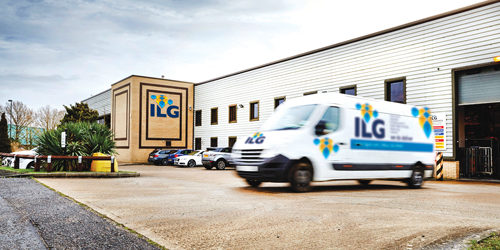
Schools and academies are arguably the basic building block of our economy with the aim of turning out well prepared young people for the world of work. Getting their future right is the key to securing a strong post-Brexit economic future for businesses. Yet many education institutions are in desperate need of financial support to ease the pressures of a teaching recruitment crisis and rising wage costs.
The Government wants schools and academies to up their game and keep striving to be ‘outstanding’ or at least ‘good’.
However, Government plans for more multi-academy trusts (MATs), for example, come at a price - a bill which the sector should not be left to pay alone from existing resources. Creating more MATs makes a lot of sense, particularly for pooling staff, which can help reduce pressures of cover when illness strikes or staff leave. But any advantage will only work if there is a big enough pool of available teachers in the first place. Ensuring the right staff capacity is always a challenge when restructuring any business. Equally, schools need the best structure to improve or maintain the education they provide but this comes at a growing price, thanks to increasing pay levels and rising National Insurance contributions and not enough available talent.
Financing our future
Schools and academies are having to offer generous packages to retain and keep their best, and the lack of top teachers means ever-increasing pay demands. Add the National Minimum Wage increase to £7.50 per hour from April 2017 and the alignment of the thresholds of employer and employee National Insurance Contributions, which will increase the cost to employers of each employee by a maximum of £7.18 per year, and this sees a further ‘hit’ to school budgets. Somewhat ironically, from April 2017 a new employment tax arises called the Apprenticeship Levy. This levy is set at 0.5% of a school’s payroll bill where it is over £3m.
But what of pensions? There is already speculation that teachers’ pension contributions are going to increase yet again; and with increases in Local Government Pension Scheme (LGPS) deficits we may see these contributions rise further still from April 2017.
An additional blow to schools is that Insurance Premium Tax will increase to 12% from 1st June 2017, which will mean a direct increase to insurance costs for schools and those academies that have not yet opted into the Risk Protection Arrangement (RPA) scheme. It should be noted that the RPA does not provide a fully comprehensive level of cover and an additional insurance cover ‘top-up’ may still be required, in which case a further cost will be incurred, with the increased premium.
Schools and academies cannot be expected to fund ballooning pension costs, increasing salary bills and rising education needs. Any political inertia on the former could have severe consequences - schools painted into a corner and forced to cut staff numbers just to pay pension contributions. One potential solution is for the Government to make a significant contribution to the LGPS scheme themselves in order to help reduce the deficit, and the burden on schools.
As expected in the Autumn Statement, the Government confirmed its commitment to encourage grammar school expansion, as set out in the ‘Schools that Work for Everyone’ document. This will be provided via the provision of £50m of new capital funding from 2017-18 for those wishing to expand. However, many question whether the expansion of grammar schools is what the sector needs – and whether it solves the basic problems facing schools currently trying to stay in operation. The Chancellor also declared £1bn of additional funding to be allocated for departmental spending, but it is uncertain whether this will be given to the Department for Education or even passed on to schools. Schools and academies are a huge part of the country’s current and future infrastructure and their products are every bit as vital to the economy as tax-paying businesses.
They form our communities and our future expectations, so a strategic perspective to investment is needed. Let’s hope this important sector will form a key part of the Government Brexit considerations.
Need advice?
For advice and further information about how schools and academies could structure their finances, please contact Sarah Ediss, Partner at Kreston Reeves by phoning 01403 253282 or emailing sarah.ediss@krestonreeves.com
We are also able to provide extensive advice across a range of tax and personal advisory needs: our multidisciplinary team members would be pleased to advise you on tax planning, investments, financial planning that takes into account your immediate and long term work and life plans.






